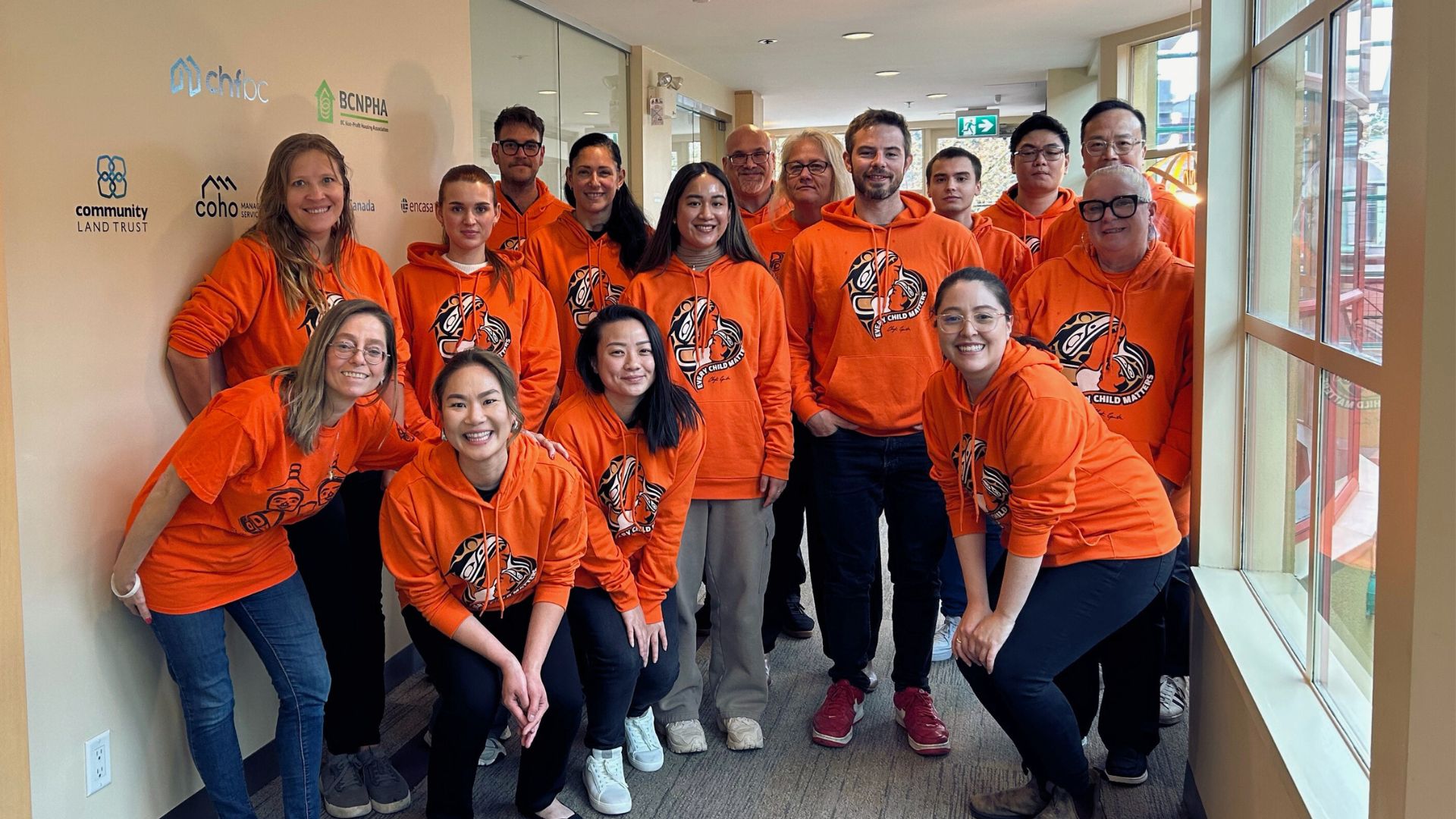
National Day for Truth and Reconciliation 2024
Each year, on September 30, we observe the National Day for Truth and Reconciliation. This federal holiday honours the children who never returned home from residential schools, as well as the survivors, their families, and their communities.
September 30 is also known as Orange Shirt Day, an Indigenous-led day of remembrance that raises awareness of the lasting effects of residential schools. It is a day to reflect on the harm caused to Indigenous children and communities and to emphasize the message, “Every Child Matters.”
Orange Shirt Day began in 2013, but its origins date back to 1973. Six-year-old Phyllis Webstad arrived at St. Joseph Mission Residential School in British Columbia, proudly wearing a new orange shirt—a rare and cherished gift from her grandmother. The shirt was taken away by the school authorities and replaced with a uniform, a small but profound act that symbolized the broader erasure of Indigenous identity, culture, and dignity.
September 30 was chosen for this day as it traditionally marked the time when Indigenous children were taken from their families to attend residential schools. It is also a time for all of us to commit to anti-racism and anti-bullying efforts in the coming year.
Sawmill Crescent: A Step Toward Reconciliation through Housing
Housing is an essential element of reconciliation, and the Housing Central partners are committed to supporting a “For Indigenous, By Indigenous” solution to BC’s housing crisis.
Indigenous people across the province face multiple and varied barriers to accessing housing that is appropriate, affordable, accessible, safe, and designed to meet their unique and diverse needs. These barriers result in consistently poor outcomes for Indigenous peoples, who continue to be overrepresented in the homeless population across BC. Indigenous individuals also face disproportionate rates of eviction, often resulting in homelessness.
Recent statistics highlight the severity of the issue:
- 4,541 Indigenous people in BC are currently homeless and require subsidized housing.
- 40% of the 11,352 homeless individuals in BC are Indigenous.
- It is estimated that 29,983 Indigenous households will require affordable housing solutions over the next 10 years.
In light of these challenges, projects like Sawmill Crescent in Vancouver, BC, represent a significant step toward addressing housing inequities. This project is a remarkable example of how strategic partnerships can impact housing affordability.
Through this partnership, 337 units will be delivered to The Community Land Trust Foundation of BC (CLT) and its not-for-profit operating partner M’akola Housing Society managing 220 of these units. Sawmill represents a significant portion of the largest one-time municipal land investment in the community housing sector in Canadian history.
By working with key partners, the Sawmill Crescent project is an example of how strategic investments in affordable housing can begin to address the barriers that have disproportionately affected Indigenous communities in BC. This initiative is part of a broader commitment to reconciliation, ensuring that more Indigenous individuals and families have access to housing that is safe, affordable, and responsive to their needs.
Wear Your Orange Shirt
The orange shirt has become a symbol of the cultural loss, stolen freedom, and diminished self-esteem experienced by Indigenous children in residential schools. We encourage everyone to wear orange on this day, not only to acknowledge the suffering of Indigenous children but also to honour the healing journeys of survivors and their families, while committing to the ongoing work of reconciliation.
Learning Opportunities
This day provides a meaningful chance to educate ourselves on Indigenous history and to actively participate in reconciliation efforts. We invite everyone to take part in events and activities that deepen their understanding of this important work.
Events in the Lower Mainland:
- Intergenerational March at UBC (Sept. 30)
- Downstream Where the Waters Mix Exhibition (All Ages) (Sept. 30)
- Finding Your Voice (Sept. 30)
Resources
Reconciliation is a deeply personal journey, and it can be challenging to know where to begin. We encourage everyone to explore these resources here.
Support
If you or someone you know is struggling with the impacts of residential schools, help is available:
- National Indian Residential School Crisis Line: 1-866-925-4419 (available 24/7)
- Kids Help Phone: 1-800-668-6868 or text CONNECT to 686868
CHF BC’s Commitment to Truth and Reconciliation
At CHF BC, we are dedicated to walking the path of reconciliation. This involves unlearning harmful narratives, embracing accountability, and actively working toward decolonizing the housing sector and beyond. We recognize that colonial practices have shaped the systems we operate in, and we are committed to fostering more inclusive spaces where Indigenous voices are heard and valued.
On this National Day for Truth and Reconciliation, we honour the memory of over 150,000 First Nations children who were forced to attend residential schools, as well as those who never returned. Their stories remind us of the enduring impact of these colonial policies.
Though one day cannot undo the harm caused by centuries of injustice, it serves as a crucial step toward healing. Reconciliation is a process rooted in learning, action, and a commitment to justice, respect, and equality. Let us use this day to reflect on our shared past and work together to create a future grounded in reconciliation.
Office Closure
In recognition of this important day, CHF BC, COHO Management Services, and CLT will be closing our offices on Monday, September 30th. We hope this time allows us all to reflect, learn, and take meaningful steps toward reconciliation.